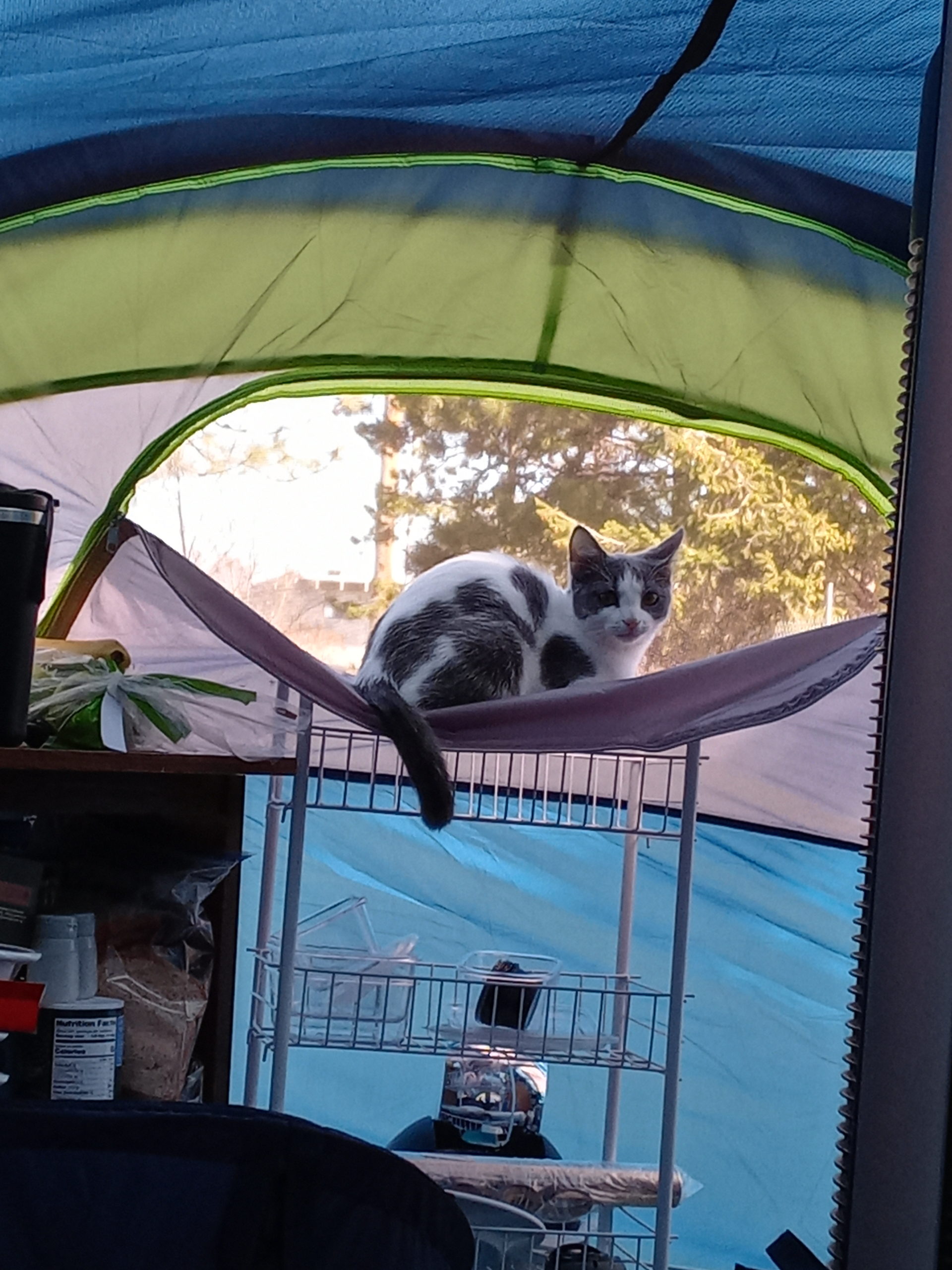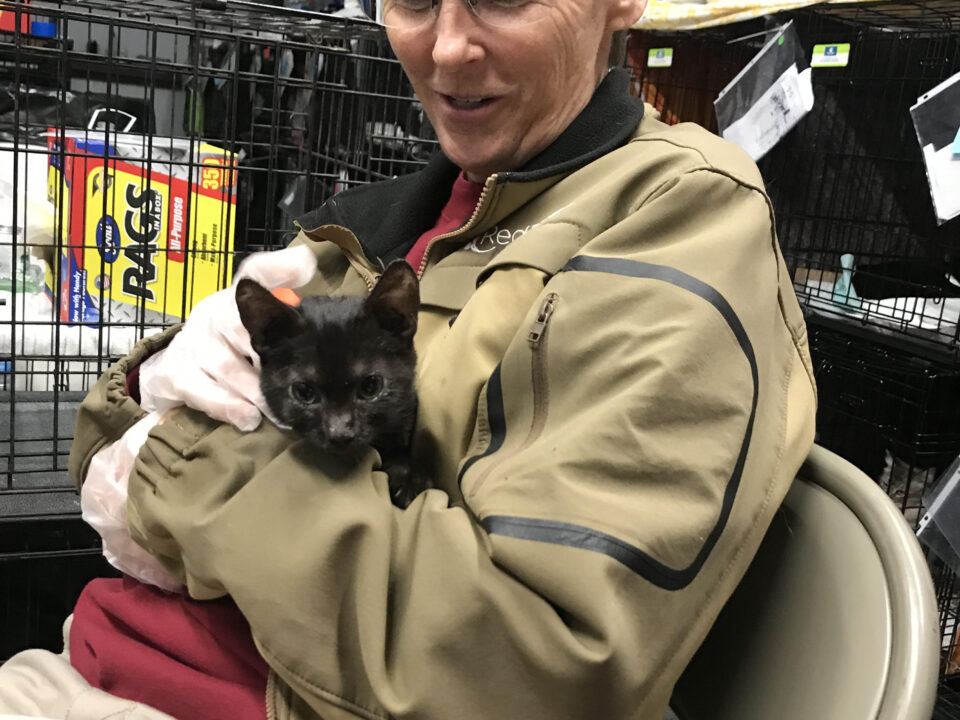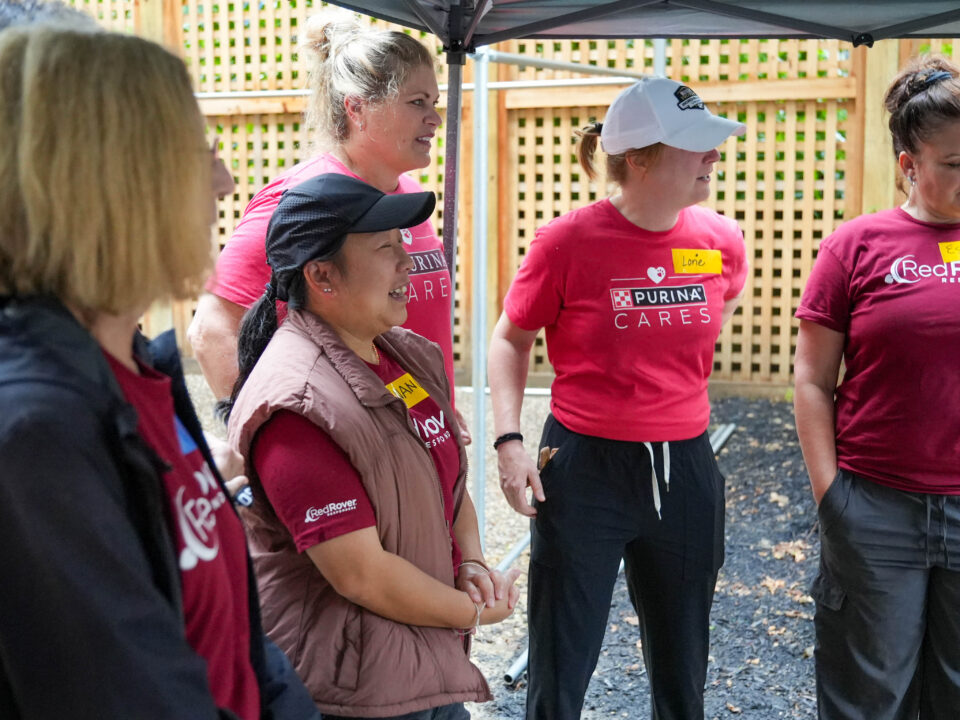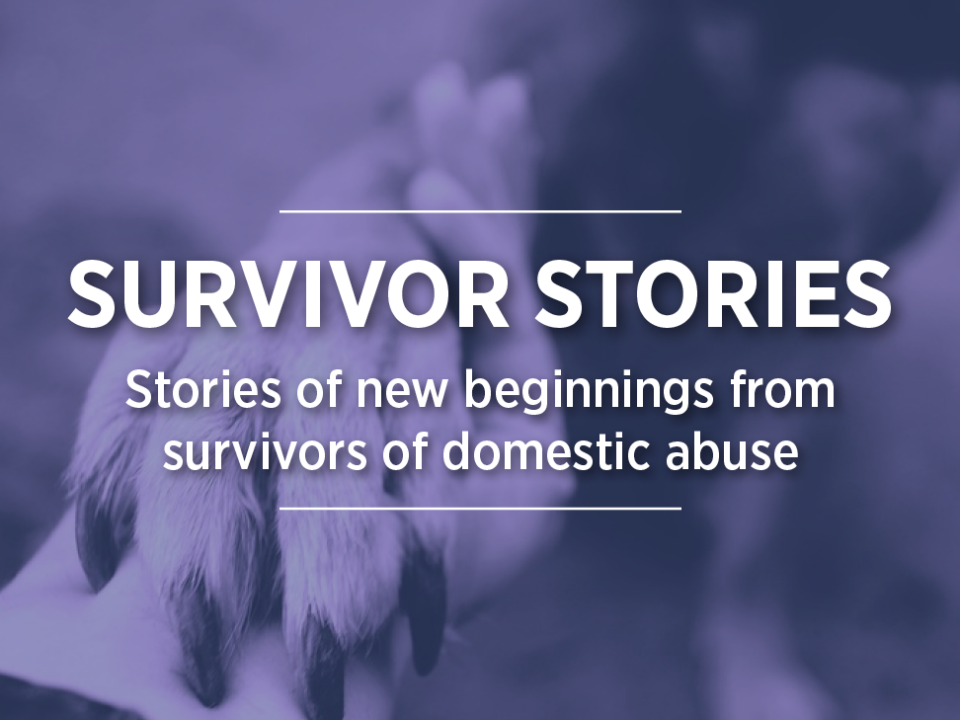In the Spirit of Empathy: Supporting the human-animal bond through crises
October 4th, 2021
By Savannah Verdon, RedRover Development and Engagement Coordinator
Few among us can say they escaped the myriad effects of the COVID-19 pandemic. Indeed, we have all faced some form of loss in the last year, big or small. As many of us gradually regain a sense of “normalcy,” it is vital that we not forget the families who can never get back what they’ve lost during the pandemic.
RedRover believes that pets are family, and keeping families together through crisis has always been our priority. For Melanie* and her cat Spirit*, nothing was more important than having each other when they were at their most vulnerable.
Melanie first reached out to RedRover in March of 2021 to apply for a RedRover Relief Urgent Care grant. Six-month-old Spirit’s canine teeth were growing incorrectly on the right side, poking her and leaving her gums constantly irritated and swollen. She would need treatment, certainly, but it wasn’t clear that her condition was a life-threatening emergency in need of immediate attention, and Melanie’s application was denied for the time being. 
She was furious and exhausted, and she sent an impassioned reply letting us know just how important Spirit was and how badly they needed help. Prior to the pandemic, Melanie had been living in an abusive relationship. After being laid off from her job twice due to COVID-19, the abuse began to escalate, and it became clear neither she nor Spirit would be safe if she stayed.
Unemployed and with nowhere to go locally, Melanie packed up her car and hit the road with Spirit, hoping to stay with family halfway across the country. But when she made it to her destination, no one could take her in, and her options seemed more and more limited. She feared having to leave Spirit behind if she went to stay in a domestic violence shelter, and she wasn’t willing to risk the possibility of being apart. Eventually, she bought a tent and sought out a safe place for her and Spirit to stay. She applied for benefits and started recycling cans for money to get by, hoping to make the most of a bad situation.
Spirit’s teeth were causing her so much pain, and Melanie was concerned that it was only a matter of time before Spirit developed a serious infection. When she initially reached out to RedRover for help, Melanie shared more about their special relationship and her fear of not being able to help Spirit:
“My cat is not legally a support animal but she means the world to me. When I’m upset or sad, she always comes and makes me smile and be happy. She’s the sweetest thing and always wants to be right next to me. She’s my best friend and I don’t want to lose her.”
 With a fuller picture of what this family of two was experiencing, we approved Melanie’s Urgent Care application so Spirit could get the treatment she needed. We also encouraged Melanie to go to a domestic violence shelter and work with an advocate to apply for a RedRover Relief Safe Escape grant, so they both could get off the streets safely. After having surgery to pull the upper canine tooth and file the lower canine tooth, Spirit is now back with Melanie, and together they will face whatever comes next.
With a fuller picture of what this family of two was experiencing, we approved Melanie’s Urgent Care application so Spirit could get the treatment she needed. We also encouraged Melanie to go to a domestic violence shelter and work with an advocate to apply for a RedRover Relief Safe Escape grant, so they both could get off the streets safely. After having surgery to pull the upper canine tooth and file the lower canine tooth, Spirit is now back with Melanie, and together they will face whatever comes next.
While every bond between a person and their pet is unique, Melanie and Spirit’s story is a familiar one to many families still reeling from the effects of the pandemic. In fact, the link between domestic violence and homelessness existed long before COVID-19, and pets have always been impacted by these devastating crises.
Domestic violence, at its core, involves one partner forcing control over the other, and for many the pandemic triggered feelings of fear and powerlessness that can drive or exacerbate patterns of control. For those living in abusive relationships, the loss of connection to others and access to resources were difficult in their own right, but the stress and anxiety of lost jobs or missed income on top of an uncertain future created a dangerous degree of instability. A March 2021 systematic review and meta-analysis of data from multiple countries revealed an approximate 7.9% increase in reported incidents of domestic violence after lockdowns were first instituted1. When looking at data from the United States alone, that number jumps to an 8.1% increase; of course, both of these data points rely on reported incidents of domestic violence – we can only estimate the true number of victims and survivors who did not or could not report the abuse they suffered during the pandemic.
For the survivors who make the courageous decision to leave, they may have more than their own wellbeing to consider. As many as 71% of pet-owning women entering domestic violence shelters report their abuser injured, killed, or threatened family pets for revenge or psychological control – and up to 48% of domestic violence survivors reported delaying leaving their abusers because they feared what would happen to their pets. With only 15% of domestic violence shelters nationwide able to accommodate a limited number of pets, many survivors may choose to endure abuse rather than leave their pet behind, putting them both at potentially fatal risk.
RedRover is committed to offering both immediate and long-term solutions to this problem so that no loving pet parent will be forced to choose between their own safety and the safety of their pet. RedRover Relief Safe Escape grants provide for the cost of pet boarding while a survivor is seeking services in a domestic violence shelter, ensuring they are able to flee abuse. Looking toward the future, we offer RedRover Relief Safe Housing grants to help domestic violence shelters build pet-friendly accommodations on-site or establish pet-inclusive programs that remove barriers for survivors and keep the entire family safe together.
In 2012, less than 10% of domestic violence shelters were able to welcome the pets of survivors. We have increased that number to just over 15%, providing over $1.7 million in Safe Housing grants to help create pet-friendly programs at 129 domestic violence shelters across the country. To continue this work, we have now made it our goal to increase the number of pet-friendly domestic violence shelters nationwide to 25% by the end of 2025.
As we make progress to enable a greater number of domestic violence shelters to accommodate the pets of survivors, there remains a substantial number of survivors who opt against seeking shelter in order to stay with their pets – in many cases leaving them with nowhere to go. Approximately 10% of the 3.5 million Americans experiencing homelessness have pets, with estimates as high as 24% in certain parts of the country2. While homeless shelters and emergency shelters – including domestic shelters – are beginning to understand the importance of welcoming pets, currently just 6% of homeless shelters nationwide are able to accommodate pets3.
Faced with the prospect of being separated from their pets, many individuals choose instead to endure homelessness, a cycle that can be incredibly difficult to break free from. In addition to the widespread misunderstanding of the root causes of homelessness, a growing number of municipalities have passed laws that criminalize behaviors necessary for survival or installed anti-homeless architecture that likewise bars unhoused people from even the most basic comforts. The limited services available to people experiencing homelessness have been even further reduced due to the pandemic – an ironic consequence of attempting to keep everyone safe. This hostile environment perpetuates the cycle of homelessness and increases the risk of becoming acutely or chronically ill, and of being physically or sexually assaulted. For the 10% of people experiencing homelessness who own pets, they must contend with additional challenges that jeopardize the invaluable bonds they share with their pets.
In the simplest terms, these pets are their family, and families are better together.
That’s why RedRover remains committed to being there for families when they need us most. We are currently developing a new Community Programs initiative that will help reduce barriers for people who are having a difficult time accessing care for their pets, including those experiencing homelessness. We are committed to supporting the human-animal bond through difficult circumstances and stay ever-vigilant to how our services can help those most in need. Our Urgent Care and Safe Escape grant programs are designed to help any loving pet owner overcome a crisis that threatens to break the bonds they share with their pet, and the RedRover Responders program guarantees that animals affected by natural disasters, hoarding, or cruelty will be reunited with their families or find new loving families of their own.
Through the Safe Housing program, we have gained a deeper understanding of how to keep pets and families together through crisis, and we now offer specialized training that explores ways to create and sustain pet-friendly housing programs for domestic violence shelters, as well as homeless and emergency shelters. Don’t Forget the Pets: Housing People and Pets is a collaborative effort between RedRover and GreaterGood Charities’ Rescue Rebuild Program that helps attendees understand the importance of the human-animal bond and teaches them the technical skills they need to support pets and people in crisis in their communities. While we continue our focus on domestic violence and the homelessness that is often connected, we are also discussing how we could extend our programs more to help others who are unhoused.
Survivors of domestic violence and their pets, as well as people experiencing homelessness with their pets, are often met with obstacles due to misunderstanding or judgment, and our commitment to building a society with stronger understanding and empathy for others would also support more help for people and animals in need. The RedRover Readers program is inspiring the next generation of animal lovers to understand the value of the human-animal bond, practice the steps for empathy, and take action to improve the lives of the animals they share their lives with and the people in their communities.
As we continue to battle the COVID-19 pandemic, its repercussions will stay with us for a very long time, creating or prolonging hardship for families and endangering the bonds we share with our pets. And as we envision and work toward a more empathetic future, we will take to heart that every bond between a person and their pet is special, and they are all worth protecting. RedRover will be there for these families, like Melanie and Spirit, to make sure they can stay together through crisis and give them hope and healing when they need it most.
*Names have been changed to protect privacy
[1] Piquero, A. R., Jennings, W. G., Jemison, E., Kaukinen, C., & Knaul, F. M. (2021). Domestic violence during the COVID-19 pandemic – Evidence from a systematic review and meta-analysis. Journal of Criminal Justice, 74, 101806. https://doi.org/10.1016/j.jcrimjus.2021.101806
[2] Pets of the Homeless. (2020, June 24). FAQs. Pets of the Homeless. https://www.petsofthehomeless.org/about-us/faqs/.
[3] Weschler, K. & Mazariegos, I. (2021, March 2-4). 2-1-1, how can we help you? Implementing a review of resources available to pets of people experiencing homelessness in Colorado [Poster session]. My Dog Is My Home’s Co-Sheltering Conference.



